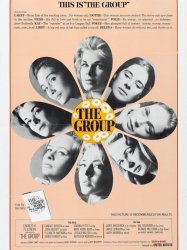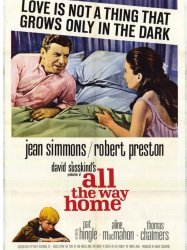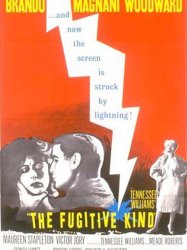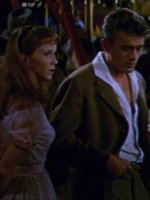Boris Kaufman is a Director, Writer, Director of Photography, Editor and Cinematography American born on 24 august 1906 at Białystok (Pologne)

Boris Abelevich Kaufman, A.S.C. (Russian: Бори́с Абра́мович Ка́уфман; August 24, 1897 – June 24, 1980) was a cinematographer.
He was the younger brother of filmmakers Dziga Vertov and Mikhail Kaufman.
Kaufman was born into a family of Jewish intellectuals living in Białystok at the time when Congress Poland was a part of the Russian Empire.
After the Bolshevik Revolution of 1917, Poland regained its independence, and Boris moved there with his parents. Mikhail and Denis stayed in the Soviet Union and became notable Soviet filmmakers producing avant-garde and agitprop films. The three brothers later stayed in touch mainly by way of letters; Vertov visited Boris Kaufman in Paris twice, in 1929 and 1931.
After graduating from the University of Paris, Boris turned to cinematography. He collaborated with Jean Vigo and later Dimitri Kirsanoff.
During World War II, he served in the French Army against the Nazis and when France lost he managed to escape to Canada. After working briefly with John Grierson, for the National Film Board of Canada, Kaufman moved to the United States in 1942.
He supported himself shooting short subjects and documentaries until Elia Kazan chose him to shoot his first American feature film, On the Waterfront (1954), for which Kaufman won an Academy Award for Best Cinematography and Golden Globe Award (1955). For the film Baby Doll (1956), Kaufman received a second Oscar nomination.
He was the director of photography on Sidney Lumet's first film, 12 Angry Men (1957), and The Pawnbroker (1964), among other notable films.
Boris Kaufman retired in 1970 and died in New York City in 1980.
Après un premier film court en 1927 ( Les Halles centrales ), Boris Kaufman commence sa carrière cinématographique en 1928 en compagnie de Jean Lods, documentariste avec lequel il travaillera à plusieurs reprises (Le Mile, La Vie d'un fleuve). Il réalise la même année les prises de vue pour La Marche des Machines d'Eugène Deslaw.
Il rencontre Jean Vigo avec qui il devient ami. Il sera le directeur de la photographie sur les quatre films de Vigo : À propos de Nice, La Natation par Jean Taris, Zéro de conduite et L'Atalante.
Boris Kaufman travaillera ensuite comme chef opérateur pour Christian-Jaque, Marc Allégret, Henri Chomette (le frère de René Clair), Abel Gance, Dimitri Kirsanoff, Léo Joannon, René Le Hénaff...
À partir de 1939 il sert dans l'armée française. À la suite de la défaite de 1940 il part pour les États-Unis. Il ne peut travailler à Hollywood, faute d'autorisation et se tourne vers le documentaire. Il travaille alors avec l'Office National du Film du Canada (créé par John Grierson en 1939), avec l'Office Of War Information (Toscanini, L'Hymne des nations, 1944), puis le Service d'information des États-Unis (Un Voyage au pays de la médecine, 1946).
Durant les années 1950, il revient à l'avant scène dans un film d'Elia Kazan qui le recrute pour Sur les quais (puis Baby Doll, La Fièvre dans le sang...) et Sidney Lumet avec lequel il fera sept films (dont Douze hommes en colère (12 Angry Men), L’Homme à la peau de serpent, Le Prêteur sur gages...). Ils tourneront ensemble jusqu'aux années 1960. Il travaillera également avec Jules Dassin et Otto Preminger, et, fidèle à son goût pour le cinéma expérimental, sera directeur de la photographie sur l'unique film de Samuel Beckett : Film (1965).
En 1970, il se retire. Il meurt à New York dix ans plus tard.
Boris Kaufman a obtenu en 1954 un Oscar pour sa direction photographique (cinematography, section Black-and-white) de Sur les quais d'Elia Kazan, et a été sélectionné dans la même catégorie en 1956 pour Baby Doll du même Kazan.
Source : Wikidata
Boris Kaufman

- Infos
- Photos
- Best films
- Family
- Characters
- Awards
Birth name Boris Abelevich Kaufman
Nationality USA
Birth 24 august 1906 at Białystok (Pologne)
Death 24 june 1980 (at 73 years) at New York City (USA)
Awards Academy Award for Best Cinematography
Nationality USA
Birth 24 august 1906 at Białystok (Pologne)
Death 24 june 1980 (at 73 years) at New York City (USA)
Awards Academy Award for Best Cinematography
He was the younger brother of filmmakers Dziga Vertov and Mikhail Kaufman.
Kaufman was born into a family of Jewish intellectuals living in Białystok at the time when Congress Poland was a part of the Russian Empire.
After the Bolshevik Revolution of 1917, Poland regained its independence, and Boris moved there with his parents. Mikhail and Denis stayed in the Soviet Union and became notable Soviet filmmakers producing avant-garde and agitprop films. The three brothers later stayed in touch mainly by way of letters; Vertov visited Boris Kaufman in Paris twice, in 1929 and 1931.
After graduating from the University of Paris, Boris turned to cinematography. He collaborated with Jean Vigo and later Dimitri Kirsanoff.
During World War II, he served in the French Army against the Nazis and when France lost he managed to escape to Canada. After working briefly with John Grierson, for the National Film Board of Canada, Kaufman moved to the United States in 1942.
He supported himself shooting short subjects and documentaries until Elia Kazan chose him to shoot his first American feature film, On the Waterfront (1954), for which Kaufman won an Academy Award for Best Cinematography and Golden Globe Award (1955). For the film Baby Doll (1956), Kaufman received a second Oscar nomination.
He was the director of photography on Sidney Lumet's first film, 12 Angry Men (1957), and The Pawnbroker (1964), among other notable films.
Boris Kaufman retired in 1970 and died in New York City in 1980.
Biography
Il quitte la Russie en 1917, voyage en Allemagne et en Belgique, arrive à Paris en 1927. Durant ces années ses frères lui donnent des cours de cinéma par correspondance. Il fait la connaissance de Léon Moussinac et Jean Lods.Après un premier film court en 1927 ( Les Halles centrales ), Boris Kaufman commence sa carrière cinématographique en 1928 en compagnie de Jean Lods, documentariste avec lequel il travaillera à plusieurs reprises (Le Mile, La Vie d'un fleuve). Il réalise la même année les prises de vue pour La Marche des Machines d'Eugène Deslaw.
Il rencontre Jean Vigo avec qui il devient ami. Il sera le directeur de la photographie sur les quatre films de Vigo : À propos de Nice, La Natation par Jean Taris, Zéro de conduite et L'Atalante.
Boris Kaufman travaillera ensuite comme chef opérateur pour Christian-Jaque, Marc Allégret, Henri Chomette (le frère de René Clair), Abel Gance, Dimitri Kirsanoff, Léo Joannon, René Le Hénaff...
À partir de 1939 il sert dans l'armée française. À la suite de la défaite de 1940 il part pour les États-Unis. Il ne peut travailler à Hollywood, faute d'autorisation et se tourne vers le documentaire. Il travaille alors avec l'Office National du Film du Canada (créé par John Grierson en 1939), avec l'Office Of War Information (Toscanini, L'Hymne des nations, 1944), puis le Service d'information des États-Unis (Un Voyage au pays de la médecine, 1946).
Durant les années 1950, il revient à l'avant scène dans un film d'Elia Kazan qui le recrute pour Sur les quais (puis Baby Doll, La Fièvre dans le sang...) et Sidney Lumet avec lequel il fera sept films (dont Douze hommes en colère (12 Angry Men), L’Homme à la peau de serpent, Le Prêteur sur gages...). Ils tourneront ensemble jusqu'aux années 1960. Il travaillera également avec Jules Dassin et Otto Preminger, et, fidèle à son goût pour le cinéma expérimental, sera directeur de la photographie sur l'unique film de Samuel Beckett : Film (1965).
En 1970, il se retire. Il meurt à New York dix ans plus tard.
Boris Kaufman a obtenu en 1954 un Oscar pour sa direction photographique (cinematography, section Black-and-white) de Sur les quais d'Elia Kazan, et a été sélectionné dans la même catégorie en 1956 pour Baby Doll du même Kazan.
Best films
Usually with
Filmography of Boris Kaufman (31 films)
Director

About Nice (1930)
, 23minutesDirected by Boris Kaufman, Jean Vigo
Origin France
Genres Documentary
Themes La provence, Documentary films about cities
Rating73%





The film begins with aerial shots and soon shows closer footage of palm trees and waves crashing ashore. The camera concentrates on people; workers performing their daily chores and wealthy persons walking in the boulevards, sailing, playing games and relaxing at the Promenade des Anglais, as well as race car drivers competing in Grand Prix motor racing. After that, the film shows the poorer neighbourhood and poverty; women doing laundry and children playing their simple games in the streets. This is followed by a carnival; processions, masks and tourists dancing and celebrating. The film ends with images of statues and men working in a factory.
Scriptwriter

About Nice (1930)
, 23minutesDirected by Boris Kaufman, Jean Vigo
Origin France
Genres Documentary
Themes La provence, Documentary films about cities
Roles Writer
Rating73%





The film begins with aerial shots and soon shows closer footage of palm trees and waves crashing ashore. The camera concentrates on people; workers performing their daily chores and wealthy persons walking in the boulevards, sailing, playing games and relaxing at the Promenade des Anglais, as well as race car drivers competing in Grand Prix motor racing. After that, the film shows the poorer neighbourhood and poverty; women doing laundry and children playing their simple games in the streets. This is followed by a carnival; processions, masks and tourists dancing and celebrating. The film ends with images of statues and men working in a factory.
Cameraman
 , 1h53
, 1h53Directed by Otto Preminger
Origin USA
Genres Drama, Comedy, Comedy-drama, Romance
Themes Films about disabilities
Actors Liza Minnelli, Robert Moore, Ken Howard, James Coco, Kay Thompson, Fred Williamson
Roles Director of Photography
Rating60%





The film stars Liza Minnelli as the title character Junie Moon, a girl whose face is scarred in a vicious battery acid attack by her boyfriend (Ben Piazza). Later in an institution, she meets a man with epilepsy (Ken Howard), and a gay paraplegic who uses a wheelchair (Robert Moore). Disabled, but not down, they live together in an older, rented house and bond, determined to prove themselves and to help each other.

The Brotherhood (1968)
, 1h36Directed by Martin Ritt
Origin USA
Genres Drama, Thriller, Action, Crime
Themes Films about immigration, Mafia films, Seafaring films, Transport films, Gangster films
Actors Kirk Douglas, Alex Cord, Irène Papas, Luther Adler, Susan Strasberg, Eduardo Ciannelli
Roles Director of Photography
Rating59%





A young American man arrives in Palermo by plane. A taxi driver at the airport immediately gets word to Frank Ginetta (Kirk Douglas), who hides, armed with a gun, until he realizes that the visitor he's been warned about is actually his kid brother, Vinnie (Alex Cord).

Bye Bye Braverman (1968)
, 1h34Directed by Sidney Lumet
Origin USA
Genres Drama, Comedy, Comedy-drama
Themes Films about writers, Films about religion, Films about Jews and Judaism
Actors George Segal, Jack Warden, Joseph Wiseman, Jessica Walter, Sorrell Booke, Godfrey Cambridge
Roles Director of Photography
Rating56%





When idealistic minor author Leslie Braverman dies suddenly from a heart attack at the age of 41, his four best friends decide to attend his funeral. The quartet of Jewish intellectuals drawn from the four corners of Manhattan consists of public relations writer Morroe Rieff from the Upper East Side, poet Barnet Weinstein from the Lower East Side, book reviewer Holly Levine from the Lower West Side, and Yiddish writer (and chronic complainer) Felix Ottensteen from the Upper West Side.

Uptight (1968)
, 1h44Directed by Jules Dassin
Origin USA
Genres Drama, Thriller
Actors Jason Bernard, Raymond St. Jacques, Ruby Dee, Frank Silvera, Roscoe Lee Browne, Juanita Moore
Roles Director of Photography
Rating72%





In Cleveland, Ohio, at the time of the assassination of Martin Luther King, Jr., protesters riot in the streets. Johnny Wells (Max Julien), a charismatic black revolutionary, leads a group of black men on a mission to steal guns from a warehouse as preparation for violent racial conflict. Johnny's best friend Tank (Julian Mayfield), who formerly worked at the steel mill with several of the men, is supposed to help with the robbery, but when the group goes to his house, they find him drunk and watching the television coverage of King's funeral. Tank is a middle-aged, unemployed alcoholic who supported King's non-violent approach, which the others have rejected in favor of violent revolution. It is later revealed that Tank lost his longtime job at the steel mill when he attacked a white co-worker who harassed the black mill workers. As a result, Tank was sent to prison and since being released, has been unable to find work. The black revolutionary group is going through a deeper radicalization, and they see Tank's inconsistent behavior as threatening to their cause.

The Group (1966)
, 2h30Directed by Sidney Lumet
Origin USA
Genres Drama
Themes Feminist films, Pregnancy films, Films about sexuality, Political films
Actors Candice Bergen, Joan Hackett, Elizabeth Hartman, Shirley Knight, Joanna Pettet, Jessica Walter
Roles Director of Photography
Rating64%





After their university days, eight women go their separate ways. Lakey, always regarded as their leader, leaves for Europe to begin a new life on her own.

The Pawnbroker (1965)
, 1h56Directed by Sidney Lumet
Origin USA
Genres Drama, Crime
Themes Films about religion, Political films, Films about Jews and Judaism
Actors Rod Steiger, Geraldine Fitzgerald, Brock Peters, Linda Geiser, Jaime Sánchez, Raymond St. Jacques
Roles Director of Photography
Rating75%





With the rise of Hitler, Sol Nazerman (Steiger), a German-Jewish university professor, was dragged to a concentration camp along with his family. He saw his two children die (one while riding in a cattle car) and his wife raped by Nazi officers in the camp. Now he operates a pawnshop in East Harlem, while living in an anonymous Long Island apartment. Numbed by his experiences, he has worked hard not to experience emotions. Nazerman is bitter and alienated, viewing the people around him as "rejects, scum." He is shown interacting cynically as he bargains with the many desperate characters pawning their goods.

Film (1965)
, 24minutesOrigin USA
Genres Drama
Themes Films about films
Actors Buster Keaton, James Karen
Roles Director of Photography
Rating73%





Throughout the first two parts almost everything is seen through the eye of the camera (designated in the script as E), although there are occasional moments when O's perception is seen. In the third part, much more of O’s perception of the room and its contents is given. In order to distinguish between the two perceptions, objects seen by O were shot through a lens-gauze, blurring his perception while E's perception was shot without gauze or filters, keeping the images sharp.

The World of Henry Orient (1964)
, 1h46Directed by George Roy Hill
Origin USA
Genres Drama, Comedy, Comedy-drama, Romance
Actors Peter Sellers, Paula Prentiss, Tippy Walker, Tom Bosley, Angela Lansbury, Phyllis Thaxter
Roles Director of Photography
Rating65%





Concert pianist Henry Orient (Peter Sellers) pursues an affair with a married woman, Stella Dunnworthy (Paula Prentiss), while two teenage private-school girls, Valerie Boyd (Tippy Walker) and Marian Gilbert (Merrie Spaeth), stalk him and write their fantasies about him in a diary.

All the Way Home (1963)
, 1h37Directed by Alex Segal
Origin USA
Genres Drama
Themes Films based on plays
Actors Jean Simmons, Robert Preston, Pat Hingle, Aline MacMahon, Thomas Chalmers, John Cullum
Roles Director of Photography
Rating71%





Au début des années 1900 dans le Tennessee, une famille subit la mort accidentelle du père. La veuve et son jeune fils se relèvent douloureusement de ce drame.
 , 2h54
, 2h54Directed by Sidney Lumet
Origin USA
Genres Drama, Historical
Themes Films about alcoholism, Films about families, Medical-themed films, Films about drugs, Théâtre, Films based on plays
Actors Katharine Hepburn, Tom McCamus, Ralph Richardson, Jason Robards, Peter Donaldson, Dean Stockwell
Roles Director of Photography
Rating74%





L'action se déroule pendant une journée du mois d’août 1912 dans la maison d’été de James Tyrone, un acteur de théâtre vieillissant et assez à l’aise financièrement. Chaque membre de la famille Tyrone est aux prises avec une situation difficile : James accepte mal de voir sa carrière décliner. Son épouse, Mary, est une morphinomane qui sort d’une cure de désintoxication. Leur premier fils, James Jr, est aussi un acteur qui ne parvient pas à bâtir une carrière. Edmund, le second fils, est un marin qui souffre peut-être de tuberculose.

Splendor in the Grass (1961)
, 2h4Directed by Elia Kazan, Ulu Grosbard
Origin USA
Genres Drama, Romantic drama, Romance
Themes Medical-themed films, Films about suicide, Films about psychiatry, Films set in psychiatric hospitals
Actors Natalie Wood, Warren Beatty, Pat Hingle, Audrey Christie, Joanna Roos, Gary Lockwood
Roles Director of Photography
Rating76%





1928 Kansas: Wilma Dean "Deanie" Loomis (Natalie Wood) is a teenage girl who follows her mother's advice to resist her desire for sex with her boyfriend, Bud Stamper (Warren Beatty), the son of one of the most prosperous families in town. In turn, Bud reluctantly follows the advice of his father, Ace (Pat Hingle), who suggests that he find another kind of girl with whom to satisfy his desires.

The Fugitive Kind (1960)
, 1h59Directed by Sidney Lumet
Origin USA
Genres Drama, Romance
Themes Théâtre, Films based on plays, Adaptation d'une pièce de théâtre de Tennessee Williams
Actors Marlon Brando, Anna Magnani, Joanne Woodward, Victor Jory, Maureen Stapleton, R.G. Armstrong
Roles Director of Photography
Rating70%





Valentine "Snakeskin" Xavier, a guitar-playing drifter, flees New Orleans in order to avoid arrest. He finds work in a small-town five-and-dime owned by an embittered older woman known as Lady Torrance, whose vicious husband Jabe lies on his deathbed in their apartment above the store. Both alcoholic nymphomaniac Carol Cutrere and simple housewife Vee Talbott set their sights on the newcomer, but Val succumbs to the charms of Lady, who plans to set him up with a refreshment bar. Sheriff Talbott, a friend of Jabe, threatens to kill Val if he remains in town, but he chooses to stay when he discovers Lady is pregnant. His decision sparks Jabe's jealousy and leads to tragic consequences.

That Kind of Woman (1959)
, 1h32Directed by Sidney Lumet
Origin USA
Genres Drama, Comedy, Comedy-drama, Romantic comedy, Romance
Actors Sophia Loren, Tab Hunter, Beatrice Arthur, Jack Warden, Barbara Nichols, Keenan Wynn
Roles Director of Photography
Rating61%





The film is set during World War II. Kay is a sophisticated Italian woman, the mistress of a Manhattan millionaire industrialist known simply as The Man, who uses her to help him influence his contacts at The Pentagon. While en route from Miami to New York City by train, she and her friend Jane meet a considerably younger American paratrooper named Red and his sergeant George Kelly, and Kay and Red fall into a romantic relationship. Eventually the woman finds herself torn between her upscale life in a Sutton Place apartment and the prospect of true love with the GI.
 Connection
Connection




